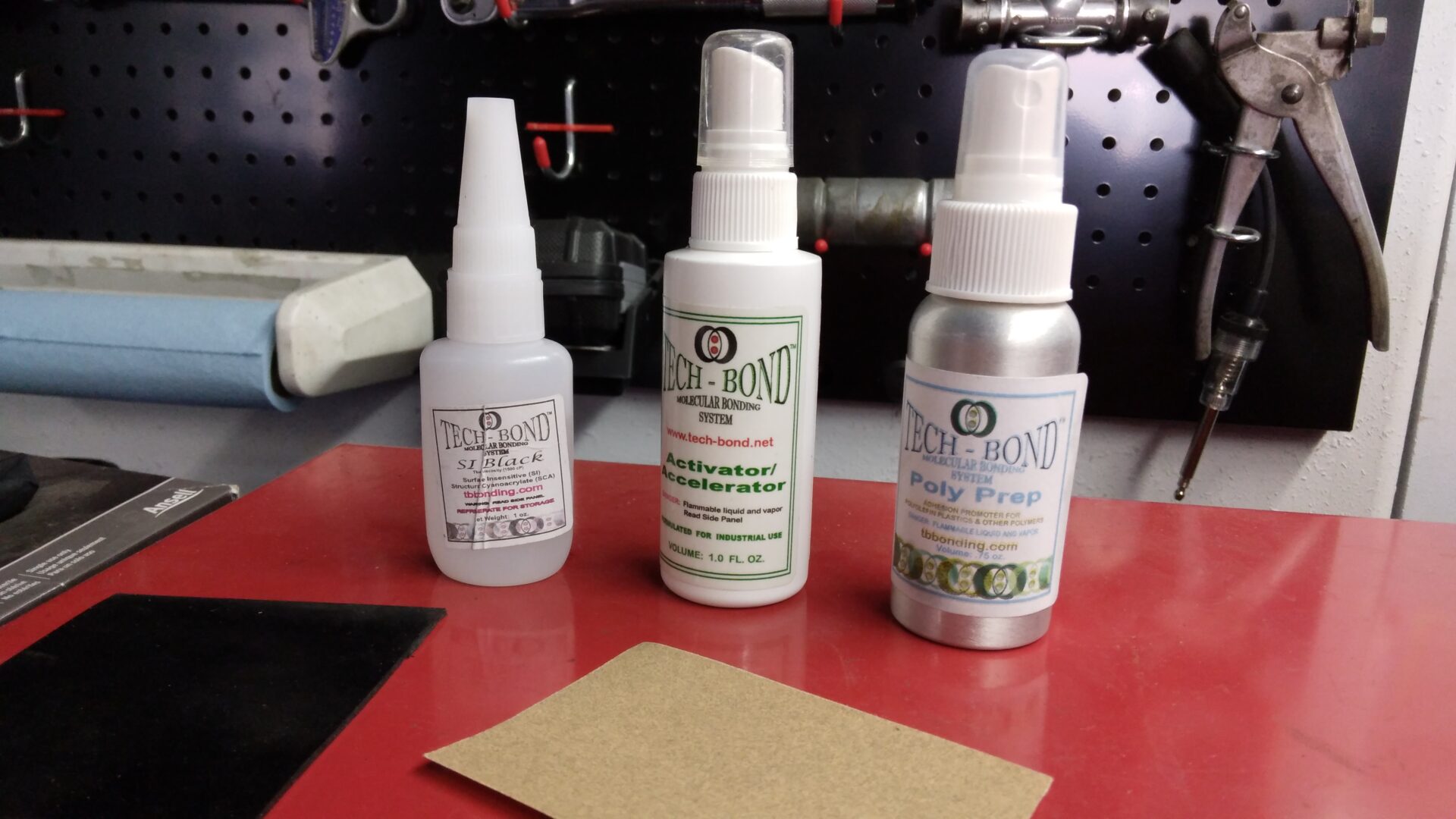High Density Polyethylene or HDPE is a common material in modern plastic gas tanks. Tough and flexible, these tanks are resistant to corrosion but can tear or scratch. When trail tree debris scraped our unprotected Jeep Cherokee fuel tank, the tank was critically close to leaking. Scrapes and strap abrasion are common with HDPE automotive fuel tanks.
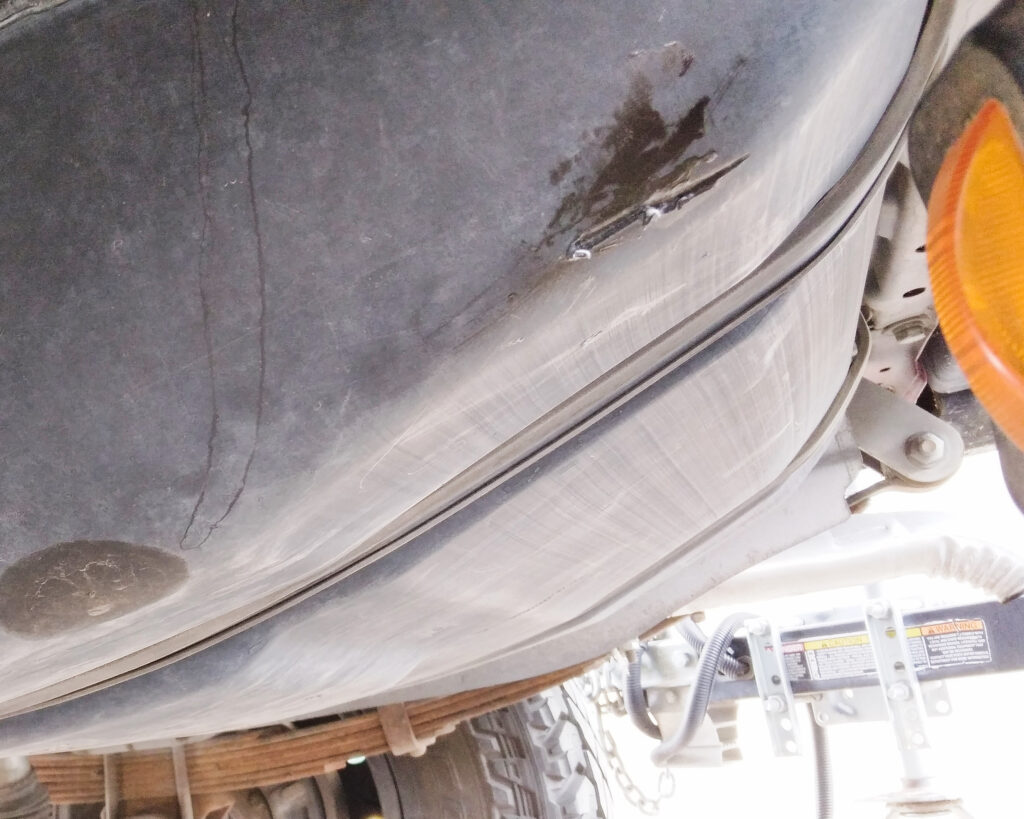
Typical of the industry, the vehicle manufacturer has discontinued offering replacement tanks for the Jeep XJ Cherokee models. Currently, there are no aftermarket poly tanks available for 1997-2001 Jeep Cherokees. A well-crafted, high capacity aluminum aftermarket tank with skid plate is available but costly. The usual path for most owners and shops is a “good used” tank.
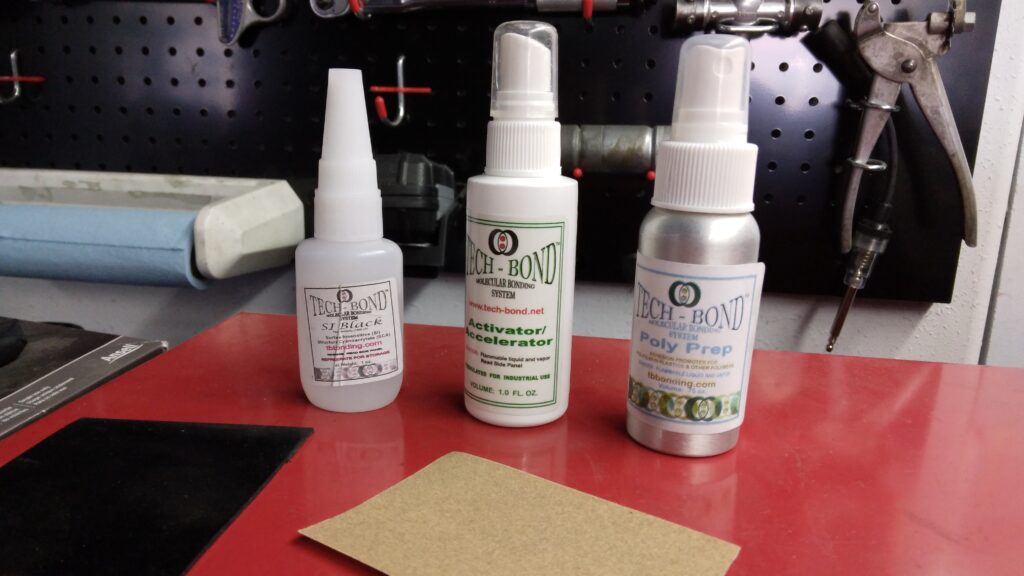
In researching repairs on polymer plastics, we discovered the Tech-Bond Solutions website and YouTube videos. Tech-Bond kits are available for automotive fuel tank repairs. Due to the flexibility and smooth surfaces of polymers like HDPE, LDPE and polypropylene, repairs cannot be effectively made with “epoxy” or “glue”. (Popular plastic repair kits state flatly that they will not work with HDPE.) Tech-Bond’s patented Polymer Bonding Process is a molecular and polymer bonding system that creates the lasting bonds needed for fuel tank repairs.
This video coverage is the detailed account of how we used a Tech-Bond Solutions PTFE (Teflon®) Poly Tech-Patch Kit to make a lasting repair on the Jeep fuel tank. The advanced materials used in the process, including the specially treated fluorosilicone (FVMQ) patch with an embedded PTFE strip, are designed for flexibility, reasonable pressure resistance, fuel compatibility and anti-corrosive properties.
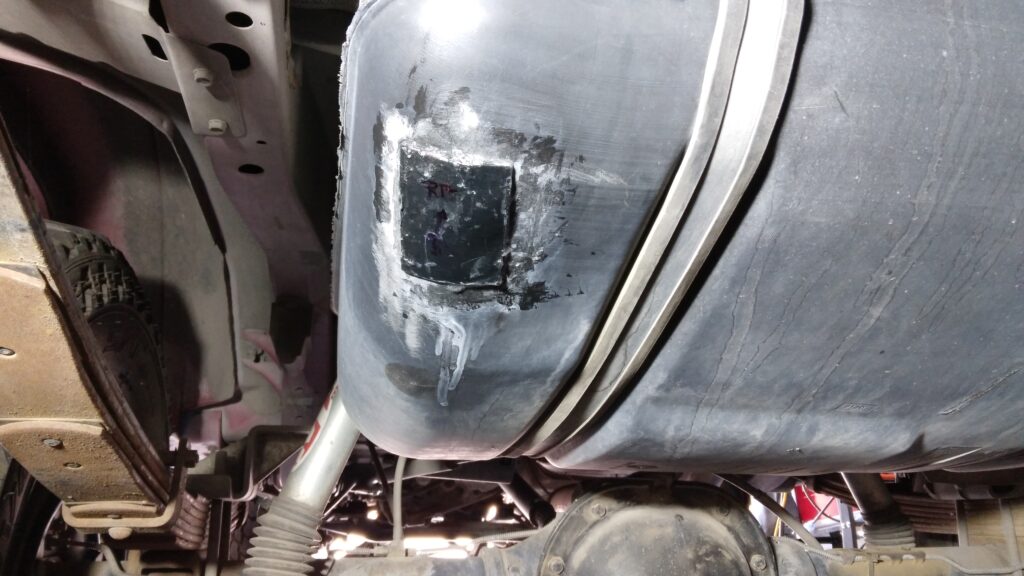
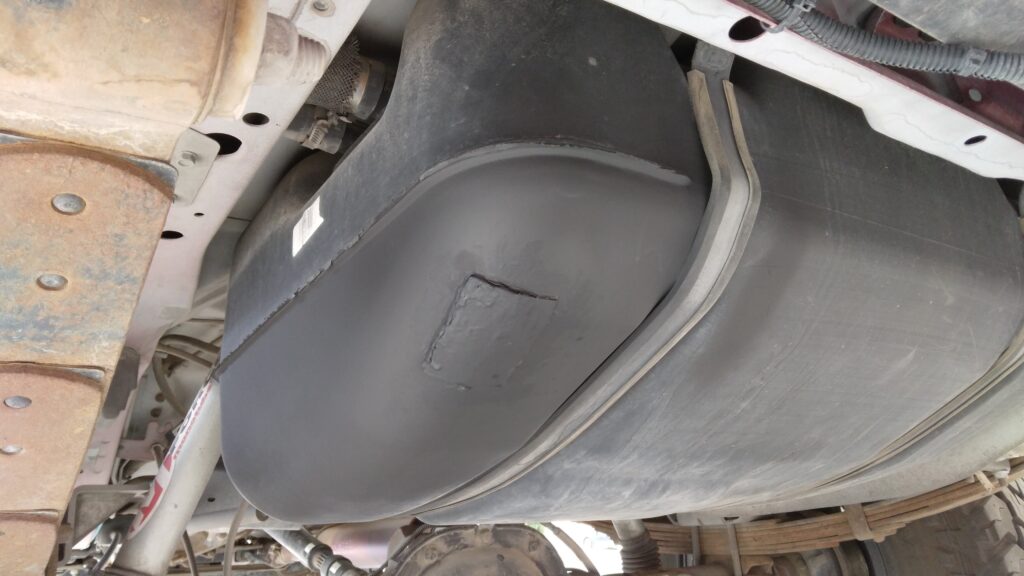
See the steps we took to repair our original equipment “HDPE/LDPE/EVOH” Jeep plastic fuel tank. The work was performed with the tank in place, similar to a backcountry repair. For remote overlanding, packing a Tech-Bond poly repair kit would be sensible. When accessorizing your 4×4 for off-pavement travel, a metal skid plate is a must. We’re getting one.

